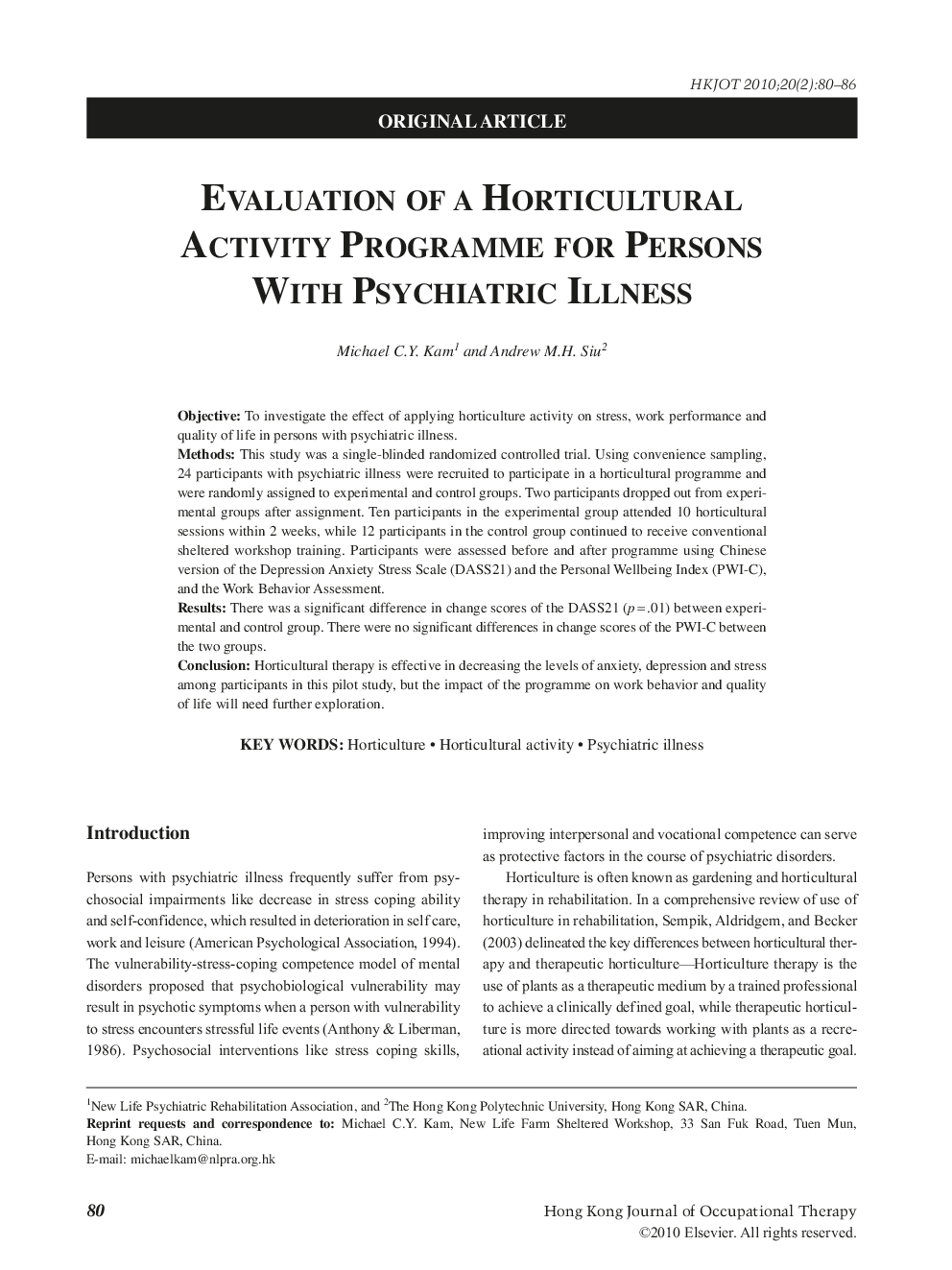| Article ID | Journal | Published Year | Pages | File Type |
|---|---|---|---|---|
| 2691772 | Hong Kong Journal of Occupational Therapy | 2010 | 7 Pages |
ObjectiveTo investigate the effect of applying horticulture activity on stress, work performance and quality of life in persons with psychiatric illness.MethodsThis study was a single-blinded randomized controlled trial. Using convenience sampling, 24 participants with psychiatric illness were recruited to participate in a horticultural programme and were randomly assigned to experimental and control groups. Two participants dropped out from experimental groups after assignment. Ten participants in the experimental group attended 10 horticultural sessions within 2 weeks, while 12 participants in the control group continued to receive conventional sheltered workshop training. Participants were assessed before and after programme using Chinese version of the Depression Anxiety Stress Scale (DASS21) and the Personal Wellbeing Index (PWI-C), and the Work Behavior Assessment.ResultsThere was a significant difference in change scores of the DASS21 (p = .01) between experimental and control group. There were no significant differences in change scores of the PWI-C between the two groups.ConclusionHorticultural therapy is effective in decreasing the levels of anxiety, depression and stress among participants in this pilot study, but the impact of the programme on work behavior and quality of life will need further exploration.
